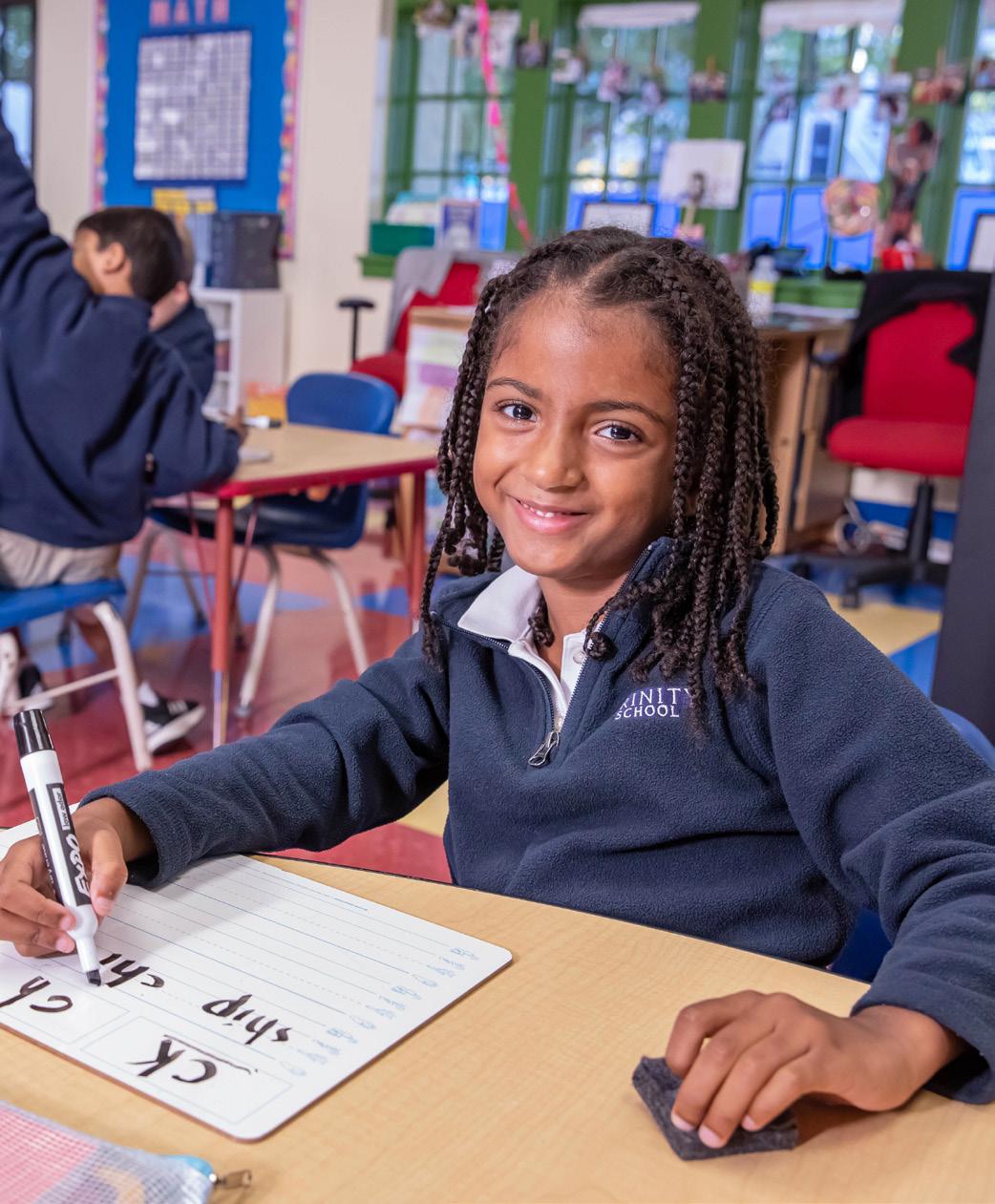
1 minute read
Language Arts
At Trinity, young readers and writers build stamina, share reading experiences, and express themselves through retelling, drawing, and writing. Our instruction is composed of intentional lessons on various reading and writing strategies through modeling, active engagement, and sustained work time. Teachers confer and guide students at their instructional level so that they can build skills and habits to become confident communicators.
An explicit, direct, and systematic approach to literacy instruction is crucial for our young learners as they develop essential foundational skills. Phonological awareness and phonics instruction support the backbone of our reading and writing program. As students learn how to distinguish between individual sounds (phonemes), the symbols that represent those sounds (graphemes), and parts of words (syllables), they begin to understand how words are formed and are able to tackle decoding (reading) and encoding (spelling). Trinity Teachers have access to high-quality resources that support science and research through methods and practices that are crucial in building literacy skills from Early Learners through Sixth Grade.
Trinity students are known for their ability to boldly communicate in front of their peers and teachers. They learn to speak clearly, tell stories, share ideas, and teach one another at a very young age.
Beginning with Pre-K nursery rhyme presentations and ending with Sixth Grade Capstone presentations, our students leave Trinity knowing that they can proudly stand in front of an audience and speak with confidence.
Student goals include:
• Developing a strong foundation of phonological awareness skills such as identifying and manipulating units of oral language and individual sounds at early and advanced levels.
• Applying spelling rules through a multi-sensory approach so that students learn to decode (read) and encode (spell) words fluently.
• Reading out loud fluently.
• Developing a rich vocabulary through storybook reading and listening to others.
• Mastering reading comprehension, which is the culmination of all the reading skills.
Quick Links
Table of Contents
Subject Areas Early Elementary Division Upper Elementary Division










